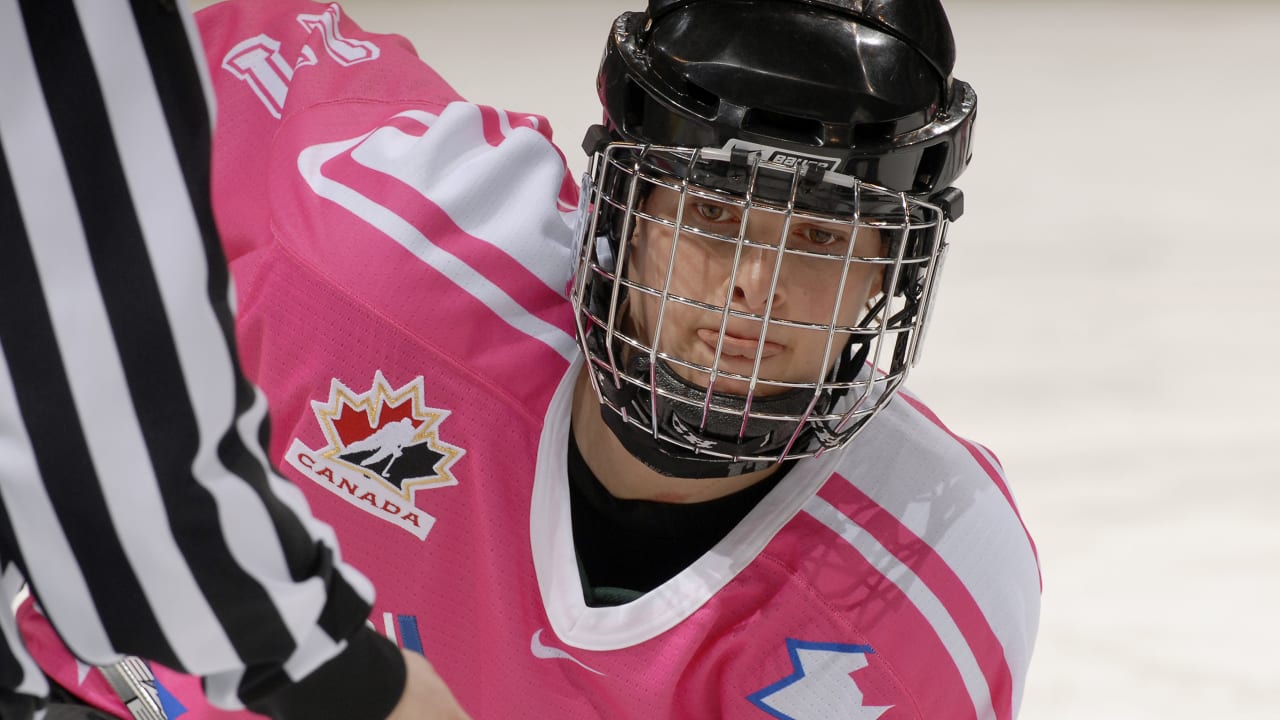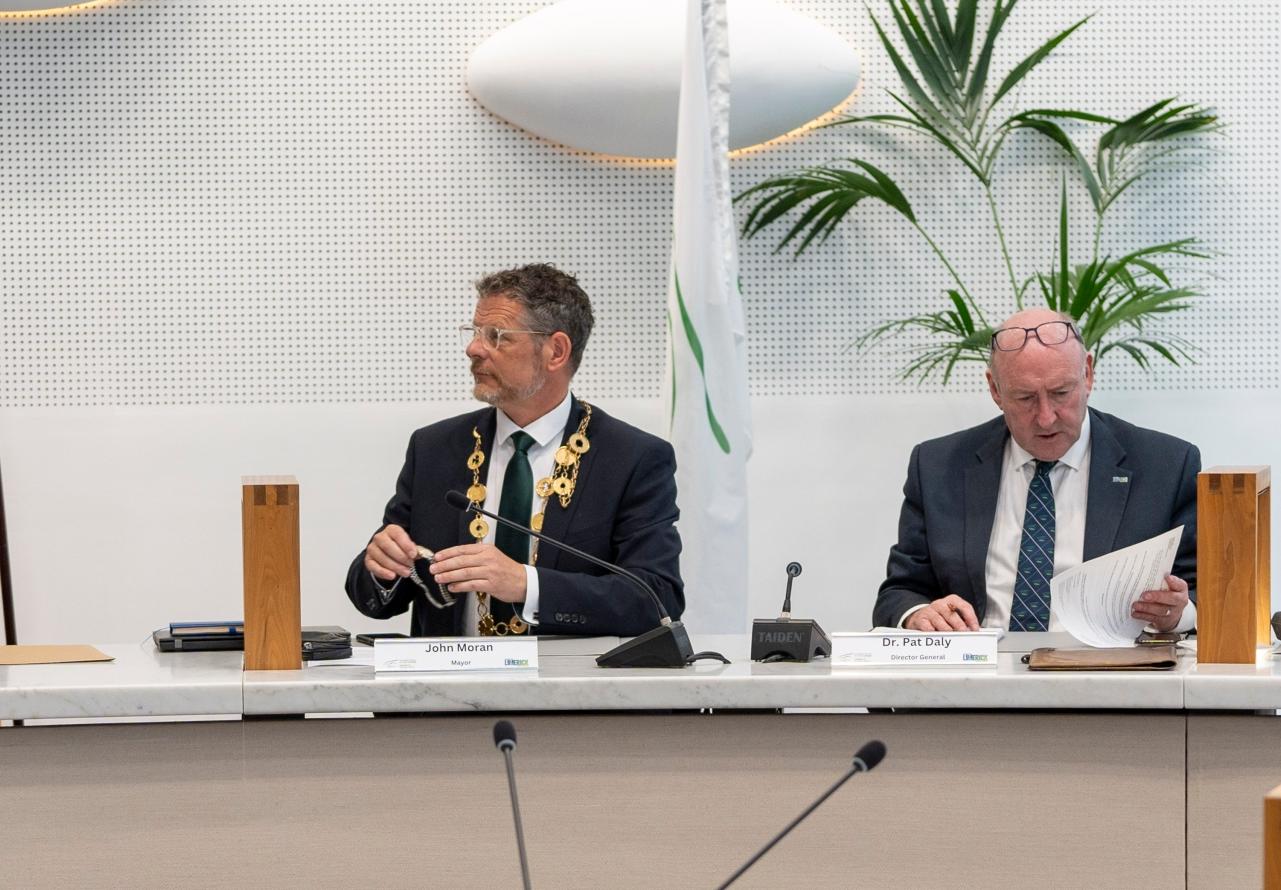Copyright NHL.com

Jennifer Botterill and Sami Jo Small first became teammates when they joined Team Canada in the late 1990s. Although each had grown up in Winnipeg, their paths had crossed only from a distance: Small once played high school volleyball against Botterill and faced off in boys hockey against her older brother, Jason. The teenagers bonded quickly over their shared roots. Botterill, a forward, and Small, a goalie, played together in three Olympics, winning two gold medals and one silver, and four IIHF World Championships, winning four golds. The two served as maids of honor in each other’s weddings. They now live near one another in Mississauga, Ontario, and have daughters the same age. Here, Small shares her unique insight into her close friend, who will be inducted into the Hockey Hall of Fame on Monday, in a special testimonial for NHL.com. Whenever Jennifer Botterill was on the ice, I could breathe easier. It didn’t matter how much pressure we were under or what the clock said. Her presence brought calm. I remember one face-off during a championship game in 2005, when we played for the Toronto Aeros of the National Women’s Hockey League. We were killing a penalty, the building was loud and every muscle in my body was tight with focus. Jen lined up to my right. With the score tied and less than two minutes to play, Jen turned before the face-off, caught my eye and nodded once, steady as ever. In that moment, I knew we were OK. That trust is where greatness begins. Jen won the draw and fired the puck the length of the ice. Her winger followed up the play 200 feet from my net and stole the puck in the opposing corner. Jen appeared almost out of nowhere, the way great players do. Taking a perfect pass threaded through traffic, Jen one-timed it top shelf. The puck hit the back of the net before anyone could process it. The arena froze, then erupted. It wasn’t luck. It was preparation meeting a lifetime of discipline. Jen had spent her whole career being ready for that exact kind of moment. Explore NHL.com's Coverage of the Olympic Winter Games Milano Cortina 2026 But her greatness was never just about goals. It was how she carried herself when no one was watching. Before the opening ceremony in Nagano in 1998, the first Olympics to include women’s hockey, the two of us waited in the tunnel, hats crooked, nerves high, the crowd roaring outside. I reached out, adjusted her hat, and she smiled. When the door opened, we stepped into the light together. That small moment captured everything about her. Calm. Present. Eyes open to the team around her. She was the person you wanted beside you when the world got loud. That same presence showed up in every chapter of her career. At Harvard, she built a legacy that still feels untouchable. Jen scored a point in nearly every single college game she ever played, a testament not just to her skill, but to her consistency. Night after night, shift after shift, she delivered. She became a two-time Patty Kazmaier Award winner, the highest honor for women in U.S. college hockey, not simply because of her stats but because of how she elevated everyone around her. She was both the calmest center and the fiercest competitor, someone who demanded excellence without ever needing to raise her voice. Her leadership didn’t need a megaphone. On the international stage, she became one of Canada’s most reliable performers, helping win three Olympic gold medals and five World Championships while serving as the heartbeat of some of the most talented teams ever assembled. What I’ve always admired most, though, is her grace amid adversity. In Nagano, we were on the wrong end of the gold-medal ceremony. The Americans were celebrating, their anthem echoing through the building. Our dressing room was quiet, hollow. The silver medal felt heavy, too heavy. Jen was beside me, shoulders square, holding herself with dignity. She felt the loss as deeply as anyone, but she never let it define her. Hall of Famers aren’t measured only by how they win, but by how they carry loss. She taught me that. Years later, when she suffered a concussion during summer training, that same composure carried her through. She took her time, made sure she felt well enough to return, unsure if she’d get back to full speed. But when she did, she was more than herself again. She was proof of what resilience looks like. There’s courage in facing impact you can’t control and choosing to rebuild anyway. Jen’s hockey intelligence is what made her so reliable in every zone. She could read a play two moves ahead, knowing where the puck would go before anyone else did. She won face-offs cleanly, created offense with vision and closed games with defensive precision. Coaches leaned on her in the hardest minutes. Power play, penalty kill, tie game, last minute, it didn’t matter. When Jennifer Botterill was over the boards, things steadied. I think that’s why she became the connective tissue of every team she touched. Off the ice, Jen shaped culture with the same quiet confidence. She built trust through example -- always early, always prepared, always ready to lend a word of encouragement when someone else’s confidence wavered. Her strength came from humility, from the belief that real success isn’t measured by who scores, but by how many people you lift with you. She carried that mindset into every locker room she entered. She didn’t just chase greatness; she created an environment where it was possible for everyone. She learned a lot of that from her parents, Doreen and Cal. Her mom, an Olympic speedskater and teacher, exudes the same kindness and heart that Jennifer now carries. Her dad taught visualization and mindset to elite athletes, and Jen lived those lessons out loud. Jennifer prepared with intention, visualized success and treated professionalism as a kind of respect for the game, for her body, for her teammates. You could feel her influence in every dressing room. Younger players looked up to her, veterans trusted her and coaches knew she’d model exactly the standard they hoped to set. Her influence stretched far beyond a single shift or tournament. She made teams better from the inside out. That’s why her legacy isn’t limited to medals or statistics. It’s in the ripple effect how she raised the bar for everyone who followed. She showed what women’s hockey could look like when played with intellect, joy and composure. Even now, in broadcasting and mentorship, she continues to elevate others. She reminds people that excellence and kindness can coexist. When I think about what makes someone a Hall of Famer, it’s not just skill or points or even championships. It’s the way they change the people around them. Jen did that. She made me better, she made our teams stronger and she made our sport richer. I think back to that face-off, the one on the penalty kill, with the game on the line. I remember looking into her eyes, a smile on her face, confident, seeing her ready, calm, focused. That’s the image that stays with me. Trusted in the hard minutes. Loved in the dressing room. That’s Jennifer Botterill. And that’s what makes her a Hall of Famer.



